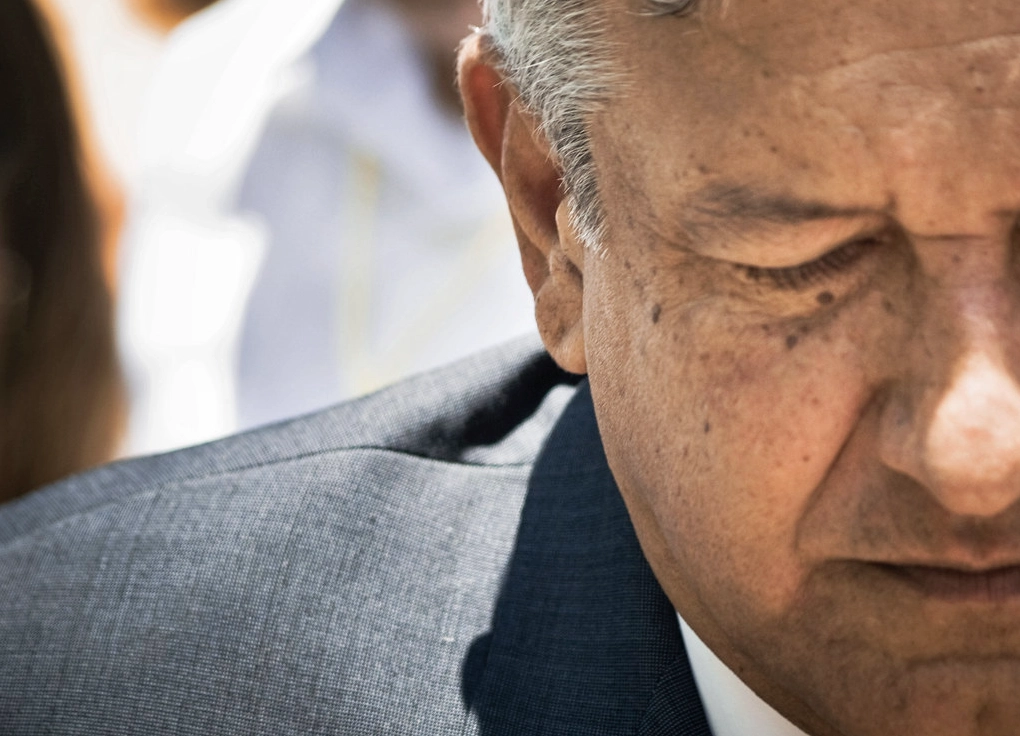“Above the law is the moral and political authority of the president,” exclaimed Andrés Manuel López Obrador (AMLO), leaving the audience of his morning conferences perplexed. Discursively, he had never gone that far before. It is assumed that in his inauguration as president he swore to keep and enforce the Constitution and the laws that emanate from it.
“No one above the law”, says another liberal maxim. It could be said that it was an emotional reaction after Natalie Kitroeff, the head of the New York Times newspaper in Mexico, had sent him a questionnaire letter informing him that her media outlet was going to publish a report on the testimonies of five protected witnesses who indicated that “allies” of the president and his children had received money from members of organized crime and wanted to know his opinion on different aspects. That would have bothered him a lot.
And that would cause him not to give a formal answer to the questions he was asked, but to upload the document on the big screen of the presidential room, and, in public, he would read and answer each one of them among disqualifications and insults. All this before the astonishment of the audience of journalists, camera persons, and officials who daily gather at dawn in the National Palace.
Perhaps it would not have been more than a bad moment for the president if it were not that the document made public had the telephone number of the American journalist. That goes against the Law of Transparency and Protection of Personal Data as making it public exposes her. In a country where the practice of journalism has been proven to be a high-risk profession, that should never happen. There is the painful balance of 42 murdered colleagues.
And it happened, which provoked reactions against the journalists’ guild inside and outside the country. Jessica Zermeño, correspondent for Univision, attended the following conference to question the president for having exposed her colleague by revealing her identity and telephone number.
The president was still upset and wanted to settle the problem by recommending that she should change her number. However, the journalist asked him if he would again disclose the identity and telephone number of a journalist when the aforementioned law limits it, and the answer was affirmative, since, he said, above the law “is the moral and political authority of the president”.
And here a discussion is opened, perhaps idle. In any democracy, the characters of institutional politics are a product of the laws and must act under its roof and defend them, not the other way around, that the laws are subject to the moods and desires of politicians.
So, it is not just a bad moment, an emotional lapse, but a projection of his personality and certain egocentrism, where the self is wrapped in the idea of the homeland and the national flag. So, in his opinion, touching the president is touching the sovereignty of the country.
We could agree that a president embodies national sovereignty as a democratically elected office since he represents the majority’s preferences. Yet, he is bound by the law since there are democratic institutions he can never be above it. The law applies to everyone regardless of public office, party affiliation, social or religious origin.
That is why AMLO made a mistake when he coined the expression mentioned above. He is dangerously close to the discourse of dictators who personalize everything in their own image and likeness.
And that said at a crucial moment in which the concurrent electoral campaigns have begun, hits the presidential candidate of his party, Claudia Sheinbaum, who until now has been under the protection of the strategy that President AMLO is the one who captains the gale of the opposition while she accumulates points twiddling her thumbs.
Admittedly, it was a good strategy that allowed her to be protected with an excellent voting intention. However, that media gale linking President AMLO with members of organized crime, which has been repeated endlessly through the hashtag #narcopresidenteAMLO and, in addition, was an intemperate cry of tens of thousands that shook the National Palace last February 18, has hit the waterline of the ruling party’s strategy. Also, the difference is closing in some serious opinion polls (see Massive Caller and El Financiero), which show only 8 percentage points in favor of the ruling party’s candidate.
In other words, when the electoral campaigns begin, the president’s time will necessarily tend to decrease, while the public space will belong to the presidential candidates. With the offer of the coalitions and, above all, the position of each one before the law to lead a country and manage the great national problems. That, in addition to the charisma of each one of them, will be definitive next June 2.
*Translated by Janaína Ruviaro da Silva from the original in Spanish.











